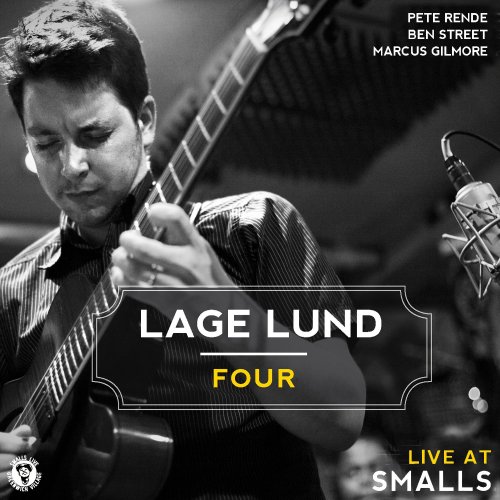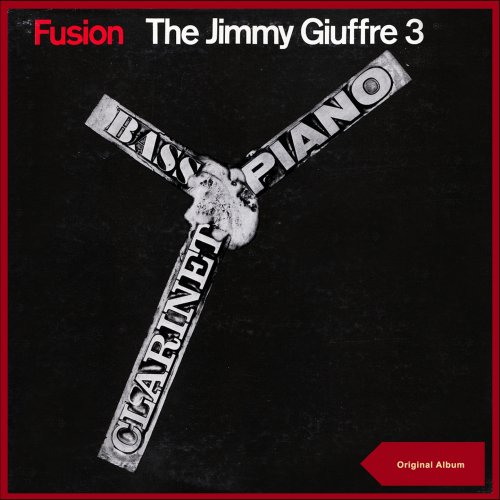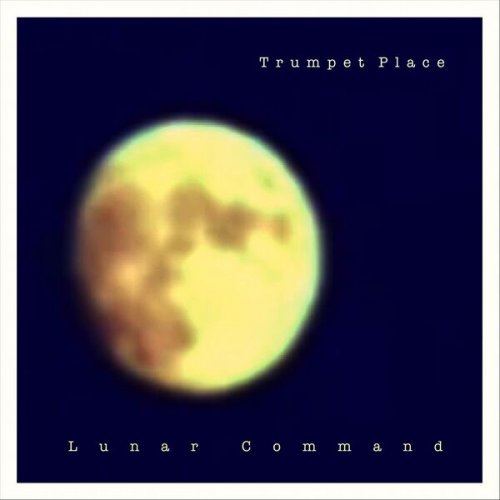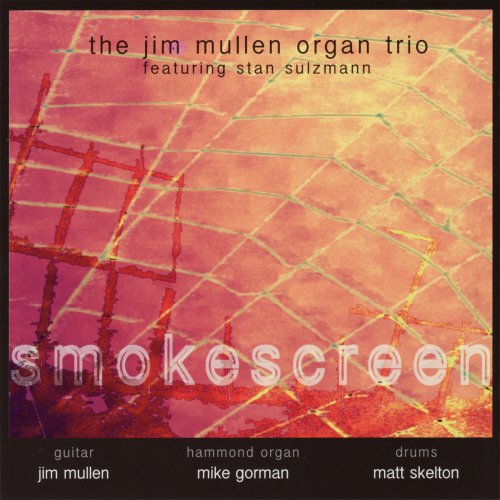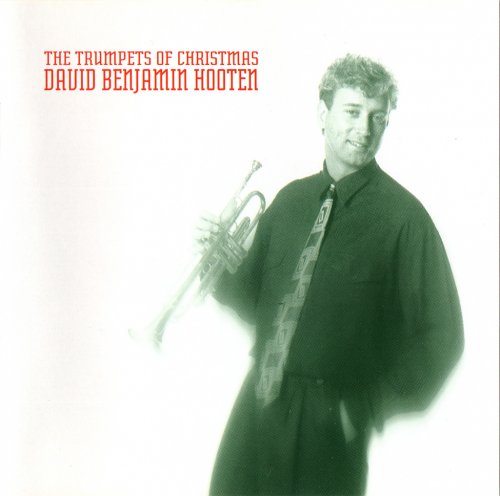Brabant Ensemble, Stephen Rice - Clemens non Papa: Behold, how joyful! Messe & Motets (2004)
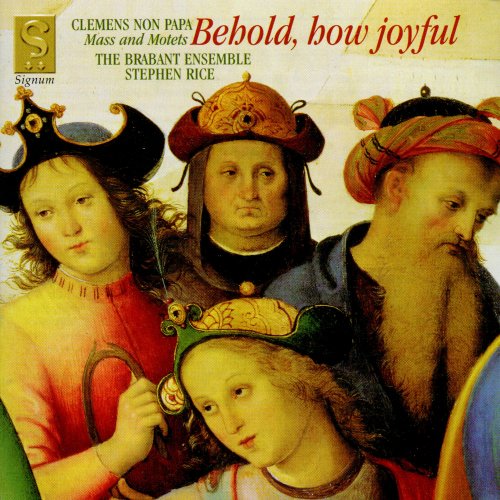
Artist: Brabant Ensemble, Stephen Rice
Title: Clemens non Papa: Behold, how joyful! Messe & Motets
Year Of Release: 2004
Label: Signum Records
Genre: Classical
Quality: FLAC (tracks)
Total Time: 01:10:42
Total Size: 303 Mb
WebSite: Album Preview
Tracklist: Title: Clemens non Papa: Behold, how joyful! Messe & Motets
Year Of Release: 2004
Label: Signum Records
Genre: Classical
Quality: FLAC (tracks)
Total Time: 01:10:42
Total Size: 303 Mb
WebSite: Album Preview
Ecce quam bonum (Jacobus Clemens non Papa)
1 Ecce quam bonum: Ecce quam bonum 03:32
2 Ecce quam bonum: Quod decendit 03:02
Missa 'Ecce quam bonum' (Jacobus Clemens non Papa)
3 Missa Ecce quam bonum: Kyrie I 01:18
4 Missa Ecce quam bonum: Christe 01:03
5 Missa Ecce quam bonum: Kyrie II 01:25
6 Missa Ecce quam bonum: Gloria in excelsis 03:25
7 Missa Ecce quam bonum: Qui tollis 02:42
Accesserunt ad Jesum (Jacobus Clemens non Papa)
8 Accesserunt ad Jesum: Accesserunt ad Jesum 02:32
9 Accesserunt ad Jesum: Non legistis 01:47
10 Accesserunt ad Jesum: Propter hoc 03:14
Missa 'Ecce quam bonum' (Jacobus Clemens non Papa)
11 Missa Ecce quam bonum: Credo in unum Deum 03:55
12 Missa Ecce quam bonum: Et resurrexit 00:58
13 Missa Ecce quam bonum: Et iterum 03:07
Job tonso capite (Jacobus Clemens non Papa)
14 Job tonso capite: Job tonso capite 04:30
15 Job tonso capite: Dominus dedit 03:55
Missa 'Ecce quam bonum' (Jacobus Clemens non Papa)
16 Missa Ecce quam bonum: Sanctus 01:41
17 Missa Ecce quam bonum: Osanna I 01:03
18 Missa Ecce quam bonum: Benedictus 01:35
19 Missa Ecce quam bonum: Osanna II 01:05
Veni electa mea (Jacobus Clemens non Papa)
20 Veni electa mea: Veni electa mea 02:56
21 Veni electa mea: Audi filia et vide 02:51
Missa 'Ecce quam bonum' (Jacobus Clemens non Papa)
22 Missa Ecce quam bonum: Agnus Dei I 03:02
23 Missa Ecce quam bonum: Agnus Dei II 03:18
Pascha nostrum (Jacobus Clemens non Papa)
24 Pascha nostrum: Pascha nostrum 03:34
25 Pascha nostrum: Haec est dies 02:54
Carole, magnus eras (Jacobus Clemens non Papa)
26 Carole, magnus eras: Carole, magnus eras 03:14
27 Carole, magnus eras: Nunc omnes 03:04
Performers:
Brabant Ensemble
Stephen Rice
For the northern European composers who followed the broad paths blazed by Josquin's stupendous achievements of the early sixteenth century, text expression was a paramount aesthetic principle. The motet, which allowed the composer to pick a vivid biblical or liturgical text and then illustrate it musically, emerged as the most important sacred genre. The mass followed in its wake to some extent, discarding elaborate architectural structures in favor of free adaptations of motet or polyphonic secular song models. Masses of this kind are referred to as parody masses or imitation masses.
The oddly named Clemens non Papa (ca. 1510-1555) was one of these post-Josquin composers. "Non Papa" meant "not the Pope" (referring to Pope Clement VII); his given name was Jacob Clement, and the nickname probably had some humorous intent. The Behold, How Joyful album presents a collection of his motets, together with one mass, the Missa Ecce quam bonum. The motet on which the mass is based, Ecce quam bonum ("Behold how good...") is included, and the album's title is taken from the continuation of its text after those initial words.
Thus even without a score the listener can follow with some success the way Clemens weaves small motifs from his motet into a largely undifferentiated flow of polyphony in the mass. The other motets are interspersed among the mass sections on the disc. They are denser than Josquin's and lack the stark expressiveness of the works by that master, but they're well worth a hearing; Job tonso capite, for example, is a beautifully reverential depiction of the praying, shaven-headed Old Testament figure of Job as he repents.
England's Brabant Ensemble takes its name from the region where many of the masterpieces of Netherlandish polyphony originated. Recording in the chapel of Oxford University's Merton College, the ensemble delivers a precise, bright sound; the female sopranos and altos keep the lines clean enough to suggest the boys' voices for which this music was written. (All of this music is for a cappella chorus.) Group leader Stephen Rice is a better musician than annotator, however; the liner notes of this disc seem to display active hostility toward non-specialist listeners. He never explains the parody or imitation mass procedure, and he writes of recent discoveries about Clemens' life without deigning to tell us what they are, referring us instead to an as-yet-unpublished book. Guess you have to know somebody in the business to find out! Notwithstanding this complaint, Behold, How Joyful is a useful and attractive recording of music by a composer who has rarely been represented on disc.
The oddly named Clemens non Papa (ca. 1510-1555) was one of these post-Josquin composers. "Non Papa" meant "not the Pope" (referring to Pope Clement VII); his given name was Jacob Clement, and the nickname probably had some humorous intent. The Behold, How Joyful album presents a collection of his motets, together with one mass, the Missa Ecce quam bonum. The motet on which the mass is based, Ecce quam bonum ("Behold how good...") is included, and the album's title is taken from the continuation of its text after those initial words.
Thus even without a score the listener can follow with some success the way Clemens weaves small motifs from his motet into a largely undifferentiated flow of polyphony in the mass. The other motets are interspersed among the mass sections on the disc. They are denser than Josquin's and lack the stark expressiveness of the works by that master, but they're well worth a hearing; Job tonso capite, for example, is a beautifully reverential depiction of the praying, shaven-headed Old Testament figure of Job as he repents.
England's Brabant Ensemble takes its name from the region where many of the masterpieces of Netherlandish polyphony originated. Recording in the chapel of Oxford University's Merton College, the ensemble delivers a precise, bright sound; the female sopranos and altos keep the lines clean enough to suggest the boys' voices for which this music was written. (All of this music is for a cappella chorus.) Group leader Stephen Rice is a better musician than annotator, however; the liner notes of this disc seem to display active hostility toward non-specialist listeners. He never explains the parody or imitation mass procedure, and he writes of recent discoveries about Clemens' life without deigning to tell us what they are, referring us instead to an as-yet-unpublished book. Guess you have to know somebody in the business to find out! Notwithstanding this complaint, Behold, How Joyful is a useful and attractive recording of music by a composer who has rarely been represented on disc.
DOWNLOAD FROM ISRA.CLOUD
Brabant Ensemble, Stephen Rice - Clemens non Papa Behold, how joyful.rar - 303.6 MB
Brabant Ensemble, Stephen Rice - Clemens non Papa Behold, how joyful.rar - 303.6 MB

